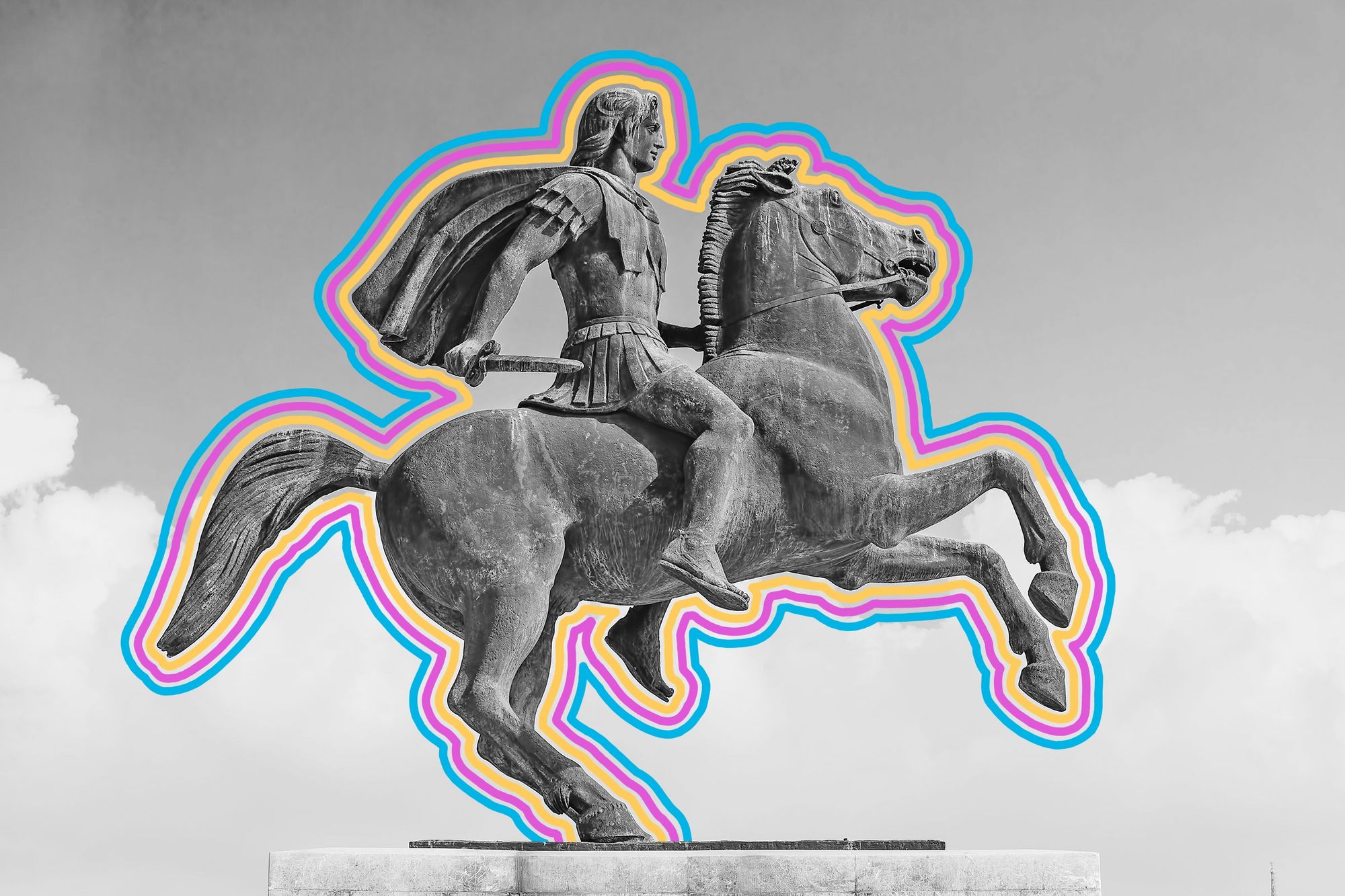

When studying history, a few big military names come to mind — Julius Caesar, Attila the Hun, Genghis Khan — but none eclipse the conqueror known as Alexander the Great. After becoming king of Macedonia at age 20 in 336 BCE, Alexander completely redrew the world map with his conquests. His empire eventually stretched around 2 million square miles, from Greece to Egypt to India, and Alexander proved himself to be one of the greatest military commanders in history — if not the greatest. Although he only sat on the throne for 13 years, his life forever changed the course of history. These six facts highlight his extraordinary, yet brief, life.
Alexander the Great Wasn’t a Self-Made Conqueror

Although Alexander the Great is known for his impressive military achievements, the young conqueror got a huge assist from his father. Known to history as Philip II of Macedon, this king of Macedonia subdued the Greek city-states of Athens and Thebes and established a new federation of Greek states known as the League of Corinth before turning his attention toward Persia. He was assassinated by a royal bodyguard in 336 BCE before he could launch the invasion. His son Alexander inherited (by violently eliminating his rivals) a war machine ready to conquer the known world.
Aristotle Was Young Alexander’s Teacher

In 343 BCE, Philip II summoned Aristotle to be the tutor for his son Alexander. The great Greek philosopher taught the young prince for seven years, until Alexander’s ascension to the throne in 336 BCE. Aristotle then returned to Athens, but Alexander brought the great thinker’s works with him on his conquests, and the two remained in touch through letters. Today, historians believe that the relationship between Aristotle and Alexander — along with the latter’s successful conquests — helped spread Aristotelian ideas throughout the conquered regions.
Alexander the Great Never Lost a Battle

Although Alexander inherited a well-oiled war machine and was taught by arguably the greatest mind of his age, the young king more than earned his eventual fame. During 13 years of war, Alexander the Great never lost a battle, making him the most successful military commander in human history. In fact, Alexander was so impressive that some military academies still teach his tactics to this day. Alexander’s strength as a leader came from the unwavering loyalty of his army, as well as his ability to leverage terrain and take the advantage over his enemies. Even when facing superior numbers, Alexander’s strong, decisive, and unrelenting leadership always led his forces to victory.
An Ancient City Was Named After His Favorite Horse

Alexander was the greatest general who ever lived, but some of that glory is shared with the horse he rode in on. Described as a black horse with a white star on its forehead, Bucephalus was Alexander’s war horse. One famous account states that the Macedonian prince was able to tame the animal after he realized the creature was afraid of its own shadow. Alexander rode the horse into every battle until its death after the Battle of Hydaspes in 326 BCE. The king subsequently named a town near the battle, in modern-day India, Bucephala. Scholars believe that Bucephalus is likely the horse depicted in the Alexander Mosaic, a famous Roman artwork that shows Alexander’s clash with Persian king Darius III.
Many Theories Surround the Death of Alexander the Great

As much as Alexander changed the trajectory of history by creating one of the largest empires ever known (then or since), so did his death at the age of 32. There are various versions of his demise, which suggest a days-long paralysis or an agonizing drawn-out poisoning. Modern theories posit that Alexander was done in by typhoid fever, or perhaps a rare neurological disorder known as Guillain-Barré syndrome, which would explain reports of his paralysis. Many doctors and historians have explored his death, yet mystery still remains about what finally put an end to the greatest warrior the world had ever seen.
Alexander’s Vast Empire Did Not Last for Long

While Alexander the Great fashioned an impressive empire, his death sent the region into a tailspin of war and uncertainty for four decades as his generals vied for power. The Hellenistic region eventually settled into four kingdoms, each ruled by one of his companions or generals who ruled as a successor: Lysimachus, Cassander, Ptolemy I, and Seleucus I Nicator. The Ptolemaic Dynasty in Egypt was the last to fall, in 30 BCE, when Cleopatra (an Egyptian pharaoh of Macedonian heritage) died after losing in battle to Octavian, later known as Caesar Augustus of Rome.
